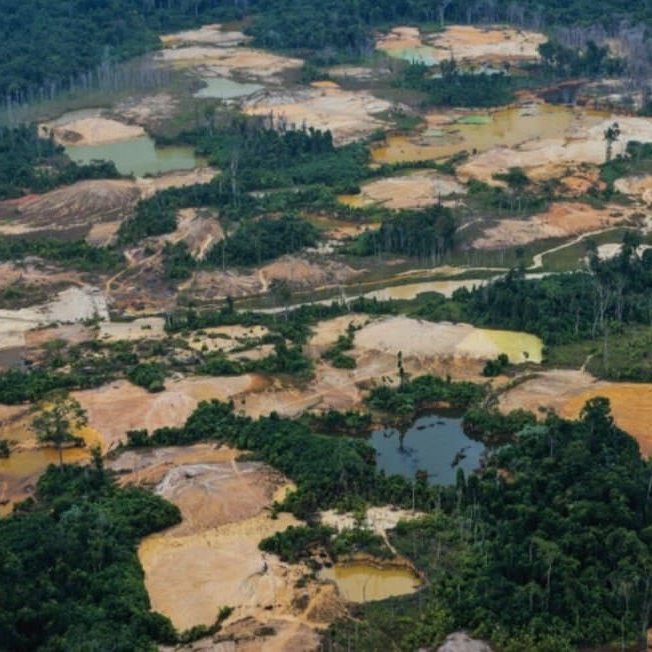Brazil: For the first time in decades, none of the 130 major mining companies in the country have current requests to research or mine on Indigenous lands

APIB
"Mining companies back away from Brazil’s Indigenous areas", 20 May 2022
...Some of the world’s biggest mining companies have withdrawn requests to research and extract minerals on Indigenous land in Brazil’s Amazon rainforest, and have repudiated Brazilian President Jair Bolsonaro’s efforts to legalize mining activity in the areas.
The Brazilian Mining Association (Ibram), which represents around 130 companies, conducted an internal survey of its members earlier this year, according to Raul Jungmann, its president. For the first time in decades, none of the companies have current research or mining applications for gold, tin, nickel, iron and other ores in Indigenous areas, he said. Neither the survey nor its results have been reported previously.
Members of the association, which accounts for 85% of Brazil’s legally produced ore, include mining giants Rio Tinto, Anglo American and Vale. The AP contacted all three companies. Rio Tinto confirmed it retracted its applications for research concessions in 2019. Anglo American did the same in March 2021. Vale withdrew its requests for research and mining concessions over the last year...
The collective retreat comes as Bolsonaro insists Indigenous territories contain mineral resources vital to bringing prosperity to both the nation and native peoples...
Jungmann said his association issued the unusual statement, first, because it has decided to become more open and transparent following two mining accidents in Minas Gerais state in 2015 and 2019 that killed hundreds of people and contaminated waterways...
Another reason, Jungmann said, is mounting pressure at home and abroad to adopt friendlier socio-environmental practices.
“We are not against mining on Indigenous lands,” he said. “However, we think the bill is inadequate, because it does not comply with the International Labor Organization’s Resolution 169, which demands free, prior and informed consent. Secondly, it doesn’t close the loopholes for illegal mining. Third, we want a project that preserves the environment, particularly the rainforest”...
Canada-based Belo Sun Mining Corp is trying the develop what would be the largest open-pit gold mine in Brazil’s Amazon rainforest. Nearby Indigenous communities claim they haven’t been consulted. Another Canadian company, Brazil Potash Corp, is fighting in court to implement a $2.2 billion project close to the territory of the Mura people, who fear the operation will affect their lands.
Neither company is affiliated with Ibram, which declined to comment about the cases...